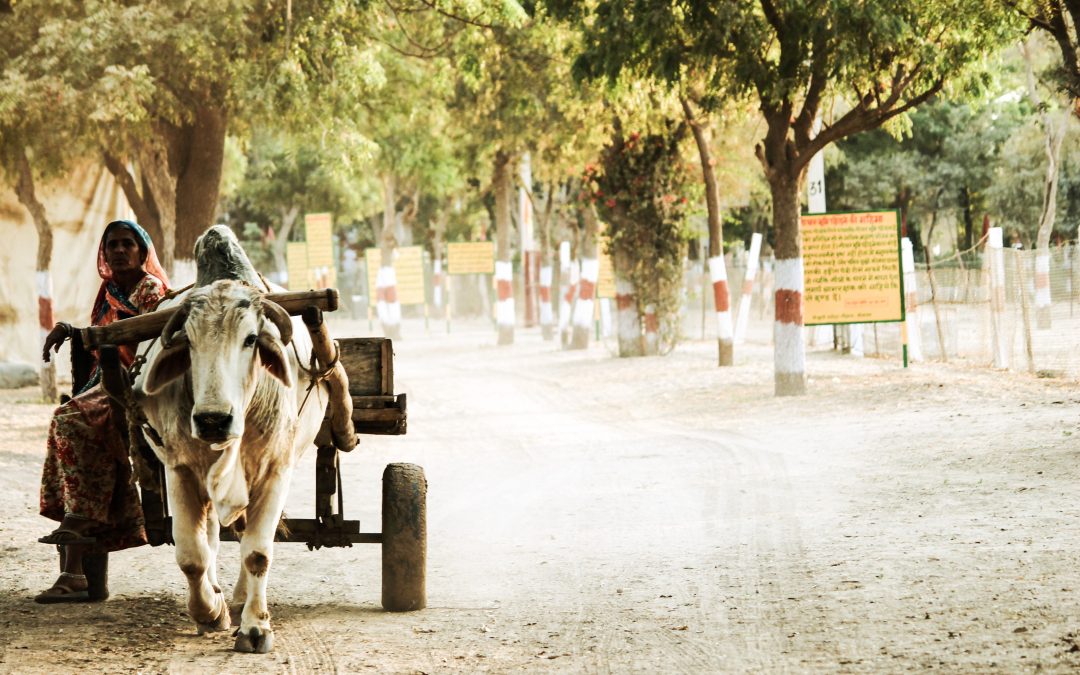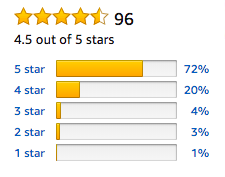
by Prashant Yadav | Apr 12, 2019 | Childhood, Life lessons, Mission Happiness, Social, Stories, Strategy
Another of the granddad’s stories.
In a small town there lived a rich merchant. He had two employees – one, a highly educated one and the other uneducated, perhaps even illiterate.
However, the ding was that the uneducated one drew a much higher salary than the educated one. Now, like all educated folks out there, he felt bad about it. Initially, like a nice educated person, he tried to keep it to himself but then, the angst took over him. He confronted the merchant.
The merchant listened to him and said, “I’ll answer this at the right time.” The educated employee left.
Then one day, a cart passed by the merchant’s door. Merchant called the educated guy and asked him to see what was in the cart. The man left, asked the cart rider and came back, “Sir, he is carrying cotton.”
The merchant said, “Ok. Where is he taking it?”
The educated employee left, the cart had travelled farther by some distance so he went up to him and asked and again came back. “Sir, he is going to Sumerpur.”
“Ok,” said the merchant, “is it for sale?”
The educated guy went out again. The cart had gone further away, so he ran to the cart and asked him and came back.
“Yes sir, it is for sale.”
“What price?”
The educated guy looked at the merchant and then bolted out the door, ran again to the cart that had almost reached the next village and then came back, panting for breath. “Ten Rupees for the entire cart.”
The merchant thought for a while, and said, “Will he give it for seven?”
The educated guy ran again. The cart had crossed the next village. After an hour, he came back. “Sir, the best he will do is eight.”
The merchant thought for a moment and then said, “Never mind.”
After a while another cart passed by. The merchant called his uneducated employee and asked him, “See what is in there.”
The uneducated guy went out and came back, “Sir, he is carrying wheat. He is going to Gopalpur market to sell it. He says it is twelve Rupees for the entire cart but he will give it here for eight.”
The merchant looked at the educated guy and said, “Now you know why I pay him the higher salary?”
This story again was left without clear interpretations. With so much focus on education at my granddad’s place, I knew the message was not anti-education. This story, again, I have heard many times from granddad and mom.
Interpretations, again, to the grown ups.

by Prashant Yadav | Apr 11, 2019 | Childhood, Life lessons, Mission Happiness, Stories, Strategy
This is a story my maternal granddad told me years ago, and it was repeated to me quite a few times by mom as well, once, when as a little boy, I asked her if ghosts are real.
The story goes like this. A man was building a thatched roof for his house. Now, thatched roofs, chhappar in Hindi, are roofs made of dry grass, long strands of which are tied together on a criss cross skeleton of bamboo staffs tied together, held in place through strings. The stuff used is the long grass and bamboo readily available in villages and even the rope used is made by winding together these long blades of grass. (You hardly see chhappars these days).
So, while he was tying grass blades for his chhappar, a sly snake bit our man and slid away somewhere. The tough rustic village guy that our man was, he looked at the wound, winced and dismissed it as a thorn prick and went on building his roof. Finished, he jumped off, hoisted the roof on wooden pillars and lived happily. For a year.
Now, chhappars take all the harsh sun and rain but last some 3-4 years, so next year, it needed repairs. Our man climbed up and saw that one of the strings tying those grass blades together wasn’t a string but a dead snake. His eyebrows curled up as he paused for a second. And then, something hit his chest. He remembered. His jaw dropped, eyes opened wide, mouth dried up and heartbeats raced off. That goddamned thorn prick was not a thorn prick. This bloody snake had bit me! All the horrible images jumped in his mind and within minutes, he had a heart failure and died.
Mom’s answer to the ghost question was that ghosts are people seeing something totally normal and taking it to be dangerous, deadly supernatural, projecting their internal fears on it. Of course, it did not help me back then, especially as 7 year old about to go pissing at night in a toilet located outside the house with a mazaar just across the door under a huge neem tree. Or perhaps it did, but not for more than a couple trips.
Also, they never gave me a cut and dried interpretation, they left it to me. Will do the same now. To each, his own. Interpretation. Peace ho!

by Prashant Yadav | Sep 26, 2018 | Politics, Relationships, Social, Stories
Mahabharata has always appeared to me as the mother of all literature – any story that can ever exist has already been done in Mahabharata. Revenge, love, envy, friendship, lust, greed, valour, cowardice, conflict, conspiracy, family dispute, friends, lovers, illicit lovers, brothers, brother-sister, mother-son, father-daughter, non-romantic boy-girl friendship (long before Mohnish Behl): everything. Only, there isn’t a single father-son bonding story.
True, there are fathers and sons. We have Yayati, who exchanges his old age with his son Puru’s youth. (His other son, Yadu who refuses to the exchange gets cursed – by dad, who else?). We have Shantanu who allows Ganga to drown his seven sons so as not to annoy her. And the eighth son who he rescues (a curious sudden bursting forth of fatherly love), he manipulates him into vowing lifelong celibacy so that daddy dearest could walk home with the next hottie by the riverside, Satyavati. We have Bhim who fathers Ghatotkach on his trips to the jungle and then uses him to neutralise the Vasavi Shakti (that Indra gave Karna), with, of course, his life.
Sons in general have been good. Dhrishtadyumna kills Drona to avenge dad Drupad’s humiliation. Oh, and that brings us to the first ‘good dad’ story – Drona at least decides to be killed once he learns son Ashwatthama is dead. Not much by the way of love or bonding but at least a dad who isn’t an asshole. Dhritarashtra – Duryodhana: we see a powerless dad more than any great love or bonding between them. Another good dad is Vasudev who drops his new born Krishna to Gokul – but here again, there is no dad-son bonding, more like an instinct to save a new born. See, the bar for a good dad is so pathetically low!
Same with Ramayana – you won’t find a single warm, strong, rich, dad-son story. Come to history and you will find dad-sons fighting each other for kingdoms.
Why is dad-son bond so less explored in literature? Tough to believe it just slipped off the minds of the great story tellers across thousands of years across the globe.
(Pic courtesy: unspalsh.com)




